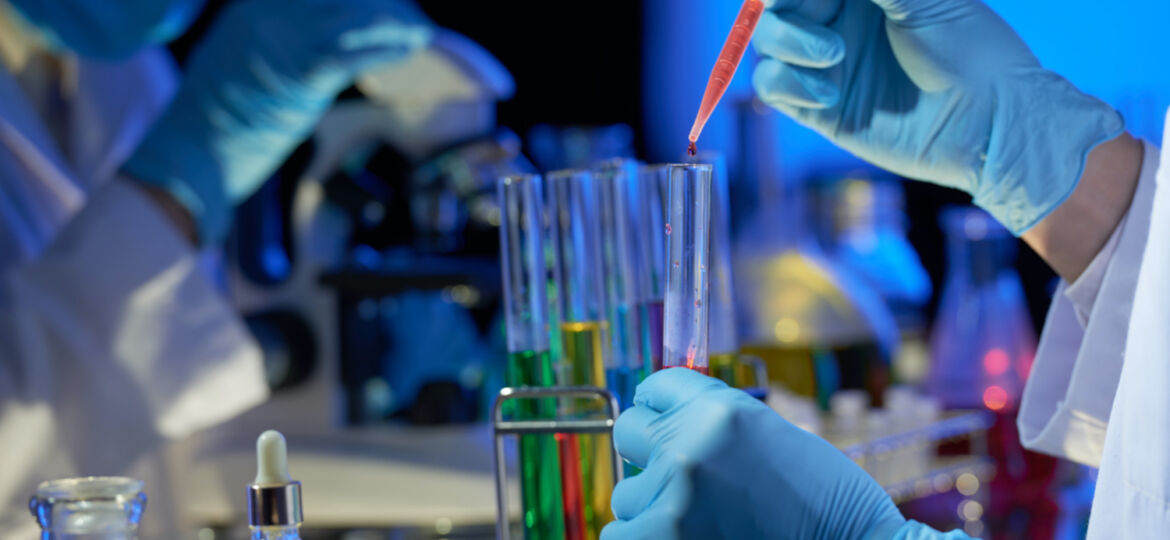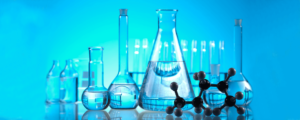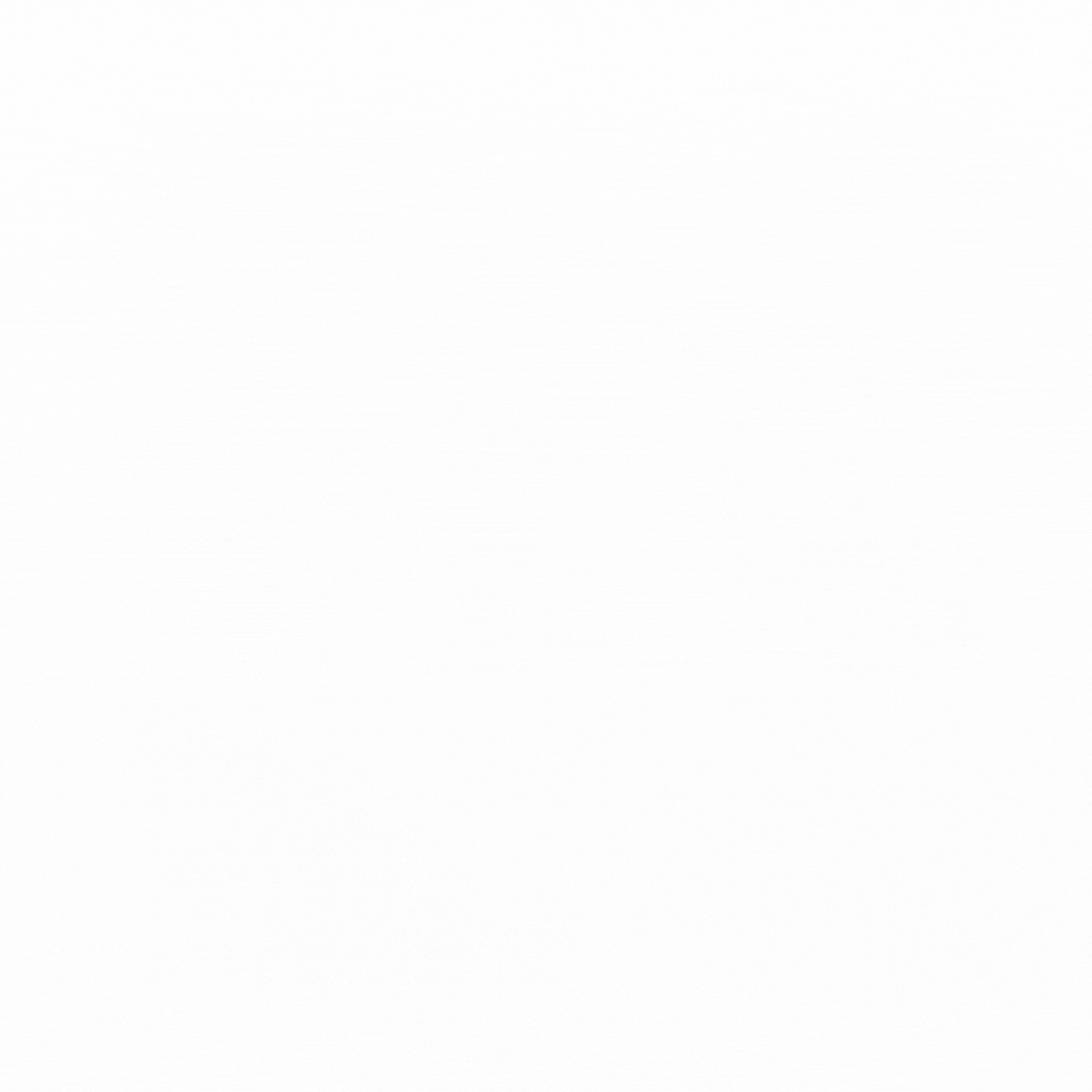
The chemical industry in Turkey has been growing rapidly and thus as Europe’s main export and import partner in chemicals, Turkey is an important production center for international investors.
Market overview
Chemical sales in Turkey have outperformed the global trend over the past 10 years. Indeed, the country achieved gross chemical sales of $29.5 million, representing a compound annual growth rate of 18%. It is estimated that this figure will reach $33 million by 2023.
 Exports in the chemical industry in Turkey have also increased. Indeed, exports of chemicals rose by 7% between 2007 and 2020, reaching a total value of US$8.9 million in 2020.
Exports in the chemical industry in Turkey have also increased. Indeed, exports of chemicals rose by 7% between 2007 and 2020, reaching a total value of US$8.9 million in 2020.
Basic chemicals (30%), soaps and detergents (22%), plastics and synthetic rubber in primary form (15%) are the sub-categories that have been exported the most over the period 2007-2020.
Furthermore, chemical imports have increased by $240 billion over the last decade, reaching $435 billion in 2018, compared to $195 billion in 2005, representing a growth of 130%.
In addition, there are about 5,000 companies, both local and foreign, operating in the chemical industry in Turkey.
Among the Turkish companies, Petkim, with its range of more than 50 petrochemical products, is one of the most important raw material producers in Turkish industry. The company specializes in petrochemical manufacturing and produces ethylene, polyethylene, polyvinyl chloride, polypropylene, and other chemical components used in the manufacture of plastics, textiles and other industrial and consumer products. In 2018, its market share in chemical sales was 6.9%. In 2008, Azerbaijan’s national oil and gas company, SOCAR, acquired 51% of the company’s public shares.
It is followed by Eti Maden, a state-owned company that mainly produces boron minerals and derivatives, with a market share of 4.1%. The company has a monopoly on the extraction of borate minerals in Turkey, where 72% of the world’s known deposits are located.
What opportunities are available?
Home / personal care:
With 84 million people and a rapidly rising middle class, local demand for household and personal care products is significant. Leading global home/personal care companies have already invested in Turkey, including P&G and Kimberly-Clark.
Paints / coating materials:
This is the sector in which Turkey receives the most investment and has an established production base with numerous SMEs and large companies ready to offer joint venture opportunities to new entrants. Demand is driven by the construction, automotive, textile and durable goods sectors, all of which are currently growing in Turkey and the region.
Fibre / filament
Thanks to its successful history in the textile sector, Turkey has a strong position in the field of fibres and filaments. These products are used in the textile, construction, and automotive industries, which are all important sectors of the Turkish economy. It is expected that demand for these products will grow strongly during the next five years.
Petrochemicals
As the second largest net importer of petrochemicals in the world, Turkey is among the fastest growing petrochemical markets after China and India.
Fertilizers
Turkey ranks 10th in the world in terms of fertilizer demand. Moreover, the country’s agricultural production is the 7th most important in the world.
In addition, various incentives for chemical investments in manufacturing and R&D exist.
- Tax deduction: 100% reduced tax rates on investors’ income until the total deduction reaches a certain percentage of capex. (30-80% of capex, up to 200% of capex in the case of project-based incentives).
- VAT exemption: Equipment and machinery, to be used for investment, imported and/or supplied locally under the incentive certificate are exempt from VAT.
- Exemption from customs duties: Equipment and machinery imported under the incentive certificate are exempt from customs duties.
- Interest rate support: For investment loans, the government covers a certain part of the interest share. (3-7% points for TL denominated loans, 1-2% points for foreign currency denominated loans).
- Land allocation: Public land is allocated for investments, if no land is available in the OIZs (Organised Industrial Zone).
Some success stories in the chemical industry in Turkey…
3M :
Manufacturer of safety, industrial/filters, personal care, automotive and healthcare products in Turkey, the company has been operating in Turkey for 30 years. With an investment of USD 0.5 billion, the conglomerate opened a large-scale manufacturing plant in Çorlu called the “Super Hub” and an innovation centre in 2015. 60% of its production is exported from Turkey. 3M chose Turkey because of the country’s strategic location, which offers easy access to markets in the Middle East, North Africa, Russia and Europe.
P&G :
Operating in Turkey for 30 years, the US multinational exports more than 20% of its production in Turkey to more than 10 countries. Turkey serves as a regional hub for Turkey and the Caucasus. A $700 million investment has been made in production facilities. In addition, 60% of the products sold in Turkey are manufactured locally
BASF:
With six production sites in Dilovasi, Çayırova, Gebze, Trabzon, Adana for chemicals, functional materials and solutions, and agricultural solutions, the company recently acquired Chemetall Turkey in Çayırova. It also has offices in Istanbul, Adana, Ankara, Antalya, Bursa, and Izmir from where it conducts the management of 78 countries. In 2015, it had achieved €742 million in sales on Turkish soil.
If you would like to learn more about the chemical industry in Turkey, you can check the chemical industry sectoral report on our website.

